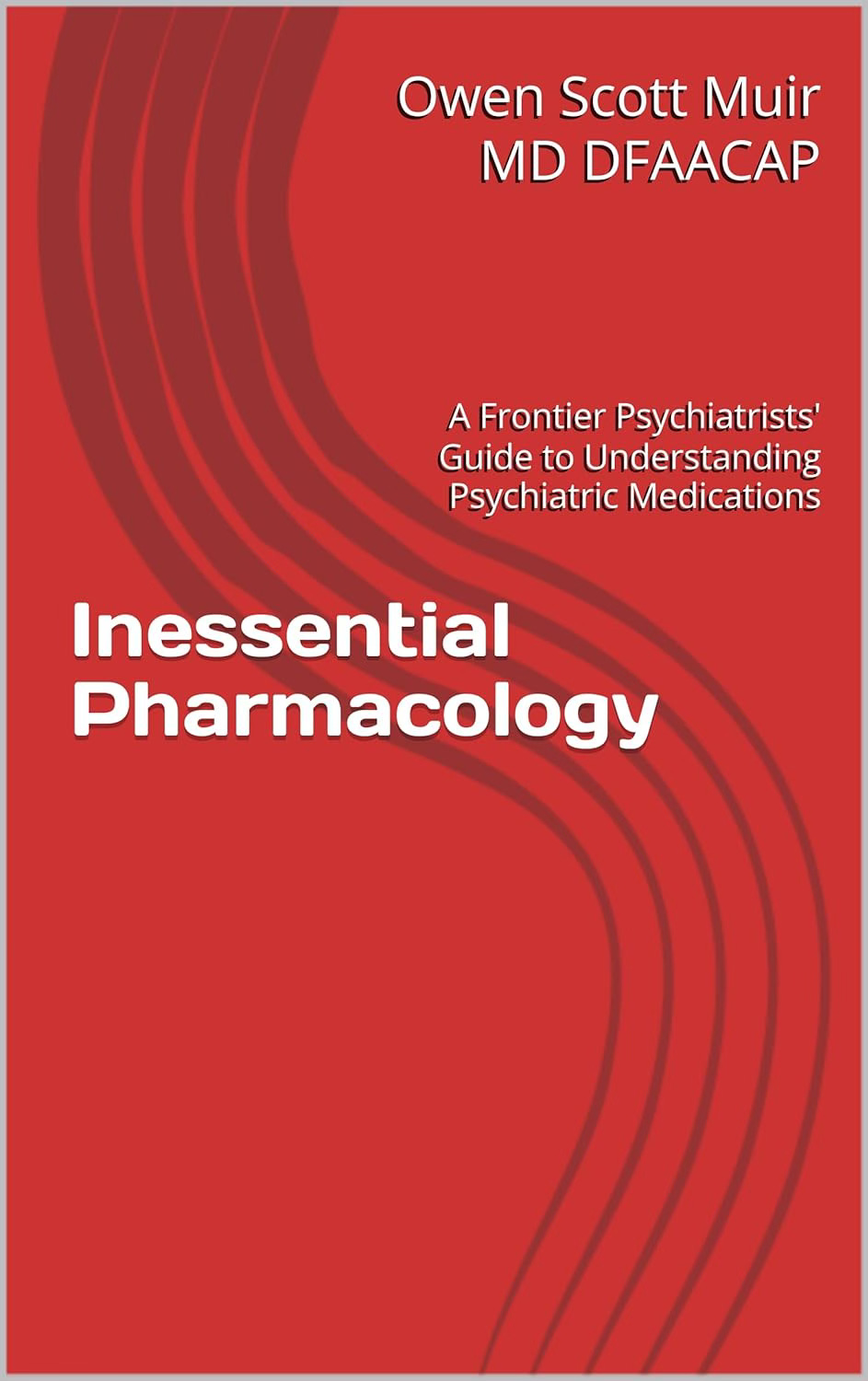I Wrote A Book
It's about drugs
In the process of starting my life as a writer, one of the pieces of advice I got from my friend Alex Cahana, M.D. He told me that if you want to write a book, what you should do is write the newsletter, and then put a bunch of the stuff from the newsletter together, and it'll turn into a book. He wasn't wrong. There's also quite a bit more formatting involved in books, even e-books. Dear readers, it isn't very pleasant.
However, I'm aware that I write a lot. I'm also aware that some people like to read stuff on a Kindle, and some individuals also like to read physical books. Today, I'm proud to disappoint those who love physical books. I'm kidding. There's still some formatting to do if I want that to work. I need to cover. If anybody likes to design covers, feel free to let me know. Going with the god-awful cover is much more keeping with the theoretical book about pharmacology. So it's a little bit of a satire cover right now, but when I do the print for him, it should not suck so hard.
I've got three physical books already, two of which are poetry, the least commercial art form on earth. One is a therapy manual published by Springer. Today, I present my first popular press book, most of which is culled from this fine newsletter. Are there other books I'm writing in the background? Yes. Today's book is about pharmacology. It's about the least essential drugs I can think of, which is most psychiatric drugs. So I called it…
Inessential Pharmacology. (amazon link)
It's just south of 400 pages. I can't promise completely no typos, but anyone reading this newsletter is very familiar with typos. They didn't tank me as a writer and won't kill you as a reader.
The book's point is to teach you how to evaluate data about medications. I just use the medications as an opportunity to do so. If you've enjoyed this newsletter but want to enjoy it as an e-book, well, this is your chance.
I sincerely appreciate your readership, and it’s helped me get to the point where any of this is possible. I felt like I was not a capable writer for a long time. I have horrible, dyslexia, and if you put a gun to my head, and asked me to spell something correctly, it would probably end up a funeral. It turns out that doesn't matter that much.
Thank you for reading; please share it with your friends, particularly if they are studying for exams in medical school and need to prove that they can read a paper.



The book looks promising and, although I am now retired and practised in the UK, I have bought it as I enjoy the pharmacology in your blog. Good luck with it!
I would be interested in helping to edit if you want that and I have a friend who is a semi-retired freelance book designer.
http://www.km-design.com
While I don’t always agree with your opinions I really appreciate your work and look forward to seeing the book!